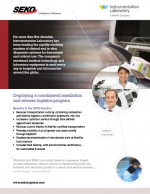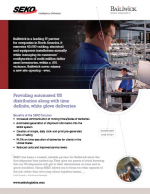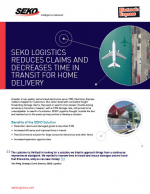Everything You Need to Know About SOLAS
What is SOLAS? Why is it necessary and what are its implications? SEKO Logistics explore this and many other consequences of the SOLAS convention.
What is SOLAS?
The international Convention for the Safety of Life at Sea (SOLAS) in an international maritime treaty implemented by the International Maritime Organization (IMO), requiring Signatory flag states to ensure that ships flagged by them comply with minimum safety standards in construction, equipment and operation.
Currently the SOLAS Convention has 162 Signatory flag states around the world. This covers 98.6% of world tonnage.
Why is SOLAS Necessary & Why Was It Introduced?
SOLAS was originally introduced as a response to the Titanic disaster in 1914. The second treaty came in 1929, the third 1948 and the fourth 1960.
The Convention in force today known as SOLAS, 1974, as amended, includes the tacit acceptance procedure. This means that any amendments to the SOLAS regulations will enter into force on a specified date unless objections are received from an agreed number of parties.
Due to this, the 1974 Convention has been updated and amended regularly to cover all issues regarding safety at sea, including sea pollution and trading.
With 90% of world trade carried by sea, it is important that shipping procedures are as safe as possible. Since the introduction of SOLAS, sea disasters have reduced dramatically. Between the years of 1966-1985, more than 300 ships were lost annually.
In 1990, this dropped to below 200, and in the year 2000 fell again to 167 ships lost at sea. In 2014, it was reported that only 75 ships were considered total losses, according to Allianz data.
What’s Related




Favorites





